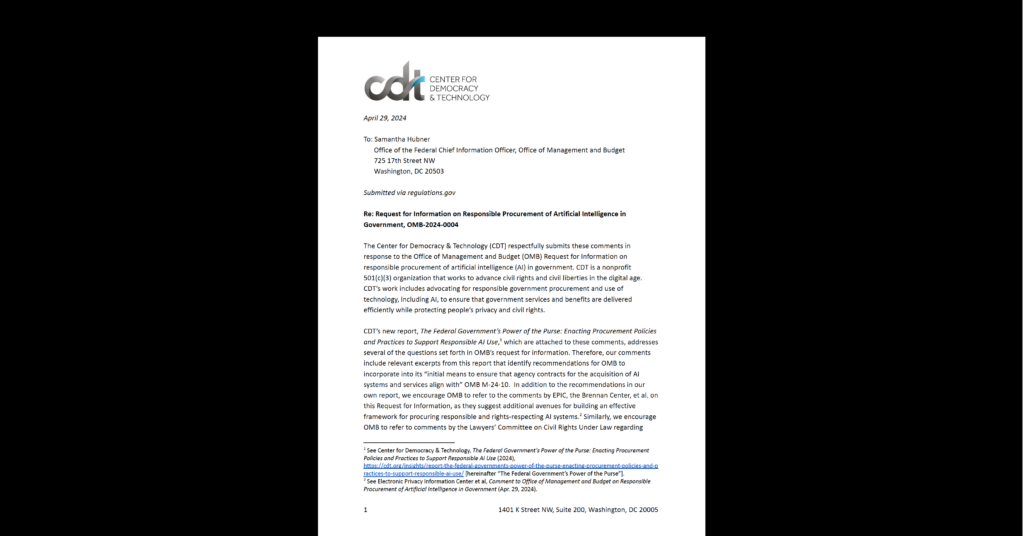European Policy, Open Internet
CDT responds to European Commission consultation on IPR Enforcement: no new legislation necessary
This month, CDT submitted its response to the European Commission’s consultation on “the evaluation and modernisation of the legal framework for the enforcement of intellectual property rights (IPR)“.
This consultation is one of several the Commission has undertaken as part of its May 2015 “Digital Single Market (DSM) Strategy“. This new consultation covers some of the same policy territory that was dealt with in the “Public consultation on the regulatory environment for platforms, online intermediaries, data and cloud computing and the collaborative economy”, which CDT responded to in December 2015.
CDT’s response restates some of the main points we raised in the context of the “Platforms Consultation”. We argue that new enforcement legislation is not necessary. We believe the existing rules relevant to the protection of intellectual property appropriately balance between rightsholders’ interest in deriving a profit from their works and the public interest in access to information, freedom of expression, and the protection of personal data. Existing law maintains balance in part by requiring effective, proportionate, and dissuasive measures to deter infringement while also stating clearly that intermediaries have no duty to monitor their systems or networks for infringing activity or content.
The need to maintain balance between effective, targeted enforcement that prioritises commercial scale infringement on the one hand, and free expression and privacy rights on the other, was one of our main arguments the last time the European Commission sought input on IPR enforcement in Europe, in 2013.
Liability of intermediaries has been an ongoing theme in the Commission’s deliberations since it began laying out its DSM Strategy. The Commission opened a debate about a “duty of care”, or monitoring obligations, for internet intermediaries to deal with illegal content. We have argued against this notion consistently and pointed out the consequences such a move would have for privacy, free expression and access to information. In addition, we argue that these suggestions are unhelpful for the kinds of digital enterprises the Commission rightly wants to promote with its DSM Strategy. Whilst large, multinational corporations have the resources to deal with the additional economic and legal uncertainty this generates, start-up companies do not. Continuing uncertainty about the future legal framework creates disincentives to entrepreneurship.
A far more helpful policy would be for the Commission to clarify that a duty to monitor, as was proposed in the Scarlet v. SABAM case, among others, contravenes the E-Commerce Directive’s (ECD) clear language that Member States may not impose such obligations on Internet service or hosting providers. Fortunately, the eventual court rulings in these cases did not result in such obligations. However, the fact that courts refer such questions to the CJEU might suggest that clarification from the Commission is necessary. The Commission can provide this clarity without rewriting the ECD or IPRED, or altering the fundamental balance they strike between the interests of rightsholders, intermediaries, and users.


